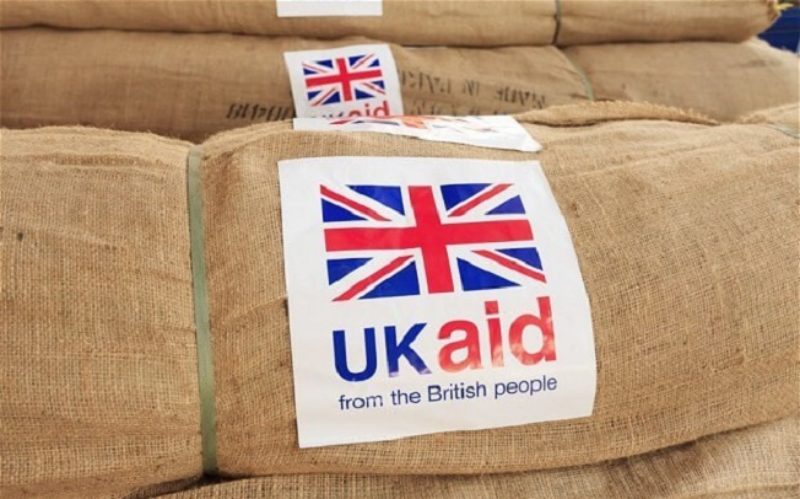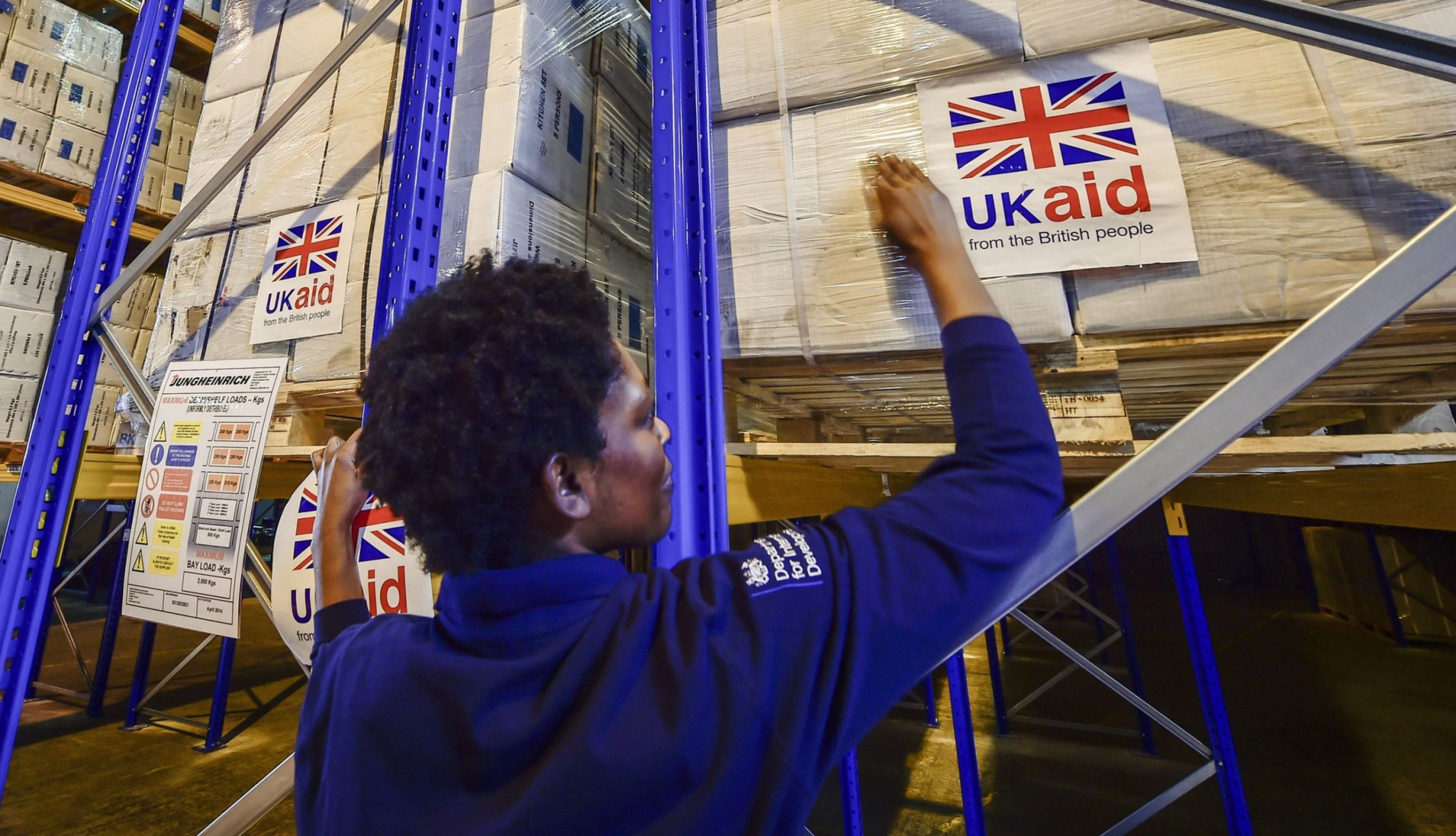Author: Julia Sun
The British Parliament agreed that the government would temporarily cut foreign aid spending from 0.7% of national income to 0.5%. This move will result in a reduction of 4 billion pounds in the UK's annual foreign aid funding, putting people in urgent need of aid and humanitarian relief around the world into a more passive situation.
Total words3120About8minutes
On July 12, the British Parliament voted for the government to continue to maintain the international aid budget at 0.5% of gross national income (GNI). Members of the House of Commons passed a motion by a vote of 333 to 298, agreeing to the government's commitment to temporarily use 0.5% of GNI for international aid until certain financial conditions are met. Recently, the Foreign Commonwealth and Development Office (FCDO) released the new department’s annual report for the first time, setting out its aid expenditure allocation plan for the 2020-21 and 2021-22 financial years. It is also the first public document to illustrate the impact of aid cuts.
The UK is an important provider of development aid
The UK is the world's fifth-largest economy and third-largest aid donor. In 2018, the UK's total official development assistance reached US$19.46 billion, which has an important influence in the field of international aid. In addition, the UK is a major provider of multilateral aid. From 2008 to 2018, the UK's total multilateral aid increased from US$3.4 billion to US$7.1 billion, an increase of 109%.
British foreign aid supports hundreds of projects around the world. In 2020, approximately 55% of UK bilateral aid went to Africa, and approximately 39% was used for aid to Asia. In 2019, the largest beneficiaries of British foreign aid were Pakistan, Ethiopia, Afghanistan, Yemen, Nigeria and Syria.
How big are the aid budget cuts this time??
In November 2020, British Prime Minister Boris Johnson announced that foreign aid expenditure would be temporarily reduced from 0.7% of national income to 0.5%. The move breaks a promise made by the Conservative Party in the 2019 election and means that Britain's annual foreign aid funding will be reduced by 4 billion pounds (about 5.48 billion U.S. dollars). Foreign aid budget cuts are mainly reflected in the areas of climate and environment, health, humanitarianism, trade, and education and gender equality.
In 2022, the scale of UK bilateral aid will be reduced by about half compared with the previous year. Among them, bilateral aid to low- and lower-middle-income countries will be reduced by 1.2 billion pounds ($1.6 billion), while overall aid to middle- and upper-middle-income countries will be reduced by only 210 million pounds ($280 million). Chancellor of the Exchequer Rishi Sunak told parliament on July 12 that the British government would only reverse its decision to cut foreign aid spending when "there is no need to borrow for daily expenditure and the underlying debt falls."
0.71What is the goal of TP3T?
The United Nations passed a resolution in 1970, encouraging developed countries to use 0.7% of their gross national income for official development assistance. Member states of the Development Assistance Committee (DAC) of the Organization for Economic Cooperation and Development (OECD) generally accept the official development assistance target of 0.7%, and 0.7% has become an important indicator for measuring developed countries’ foreign aid expenditures.
The International Development (Official Development Assistance Targets) Act, passed in 2015, is the UK’s first cross-departmental aid strategy. The "Bill" stipulates that the annual development assistance expenditure shall not be less than 0.7% of the gross national income, and proposes that development assistance should support national interests while reducing poverty.
Development aid expenditures of major OECD DAC donor countries
Share of GNI (2020)

What is the reaction from various sectors in the UK to the reduction in aid budget?
The UK government's move to cut its aid budget has been strongly criticized by politicians, church leaders and charities.
NGOs believe this decision will be catastrophic for vulnerable areas around the world. Stephanie Draper, chief executive of UK NGO network Bond, said the government's decision to cut the foreign aid budget sounded the death knell for the UK's leadership in international development and the "Global Britain agenda".
Some politicians also believe that this move will cause a major blow to the UK's international status and global leadership in the field of international development. Fifty Conservative MPs and all opposition parties expressed deep concern over the government's decision to cut the aid budget. Former Conservative Prime Minister Theresa May believes the move will hurt the world's poorest country and damage Britain's reputation.

What are the international implications of Britain's cuts to its foreign aid budget?
The UK's aid budget cuts will hit the poorest countries the hardest, leaving people in urgent need of aid and humanitarian relief around the world in a more passive situation. The International Rescue Committee (IRC) said that UK aid cuts will seriously affect basic education in Pakistan. Nearly 11,000 rural Pakistani girls may be forced to lose their education opportunities once the UK stops providing aid funds. In Yemen, which has suffered a severe humanitarian disaster, the UK's aid commitment has dropped from 139 million pounds (about 197 million U.S. dollars) in 2020 to 87.2 million pounds (about 123 million U.S. dollars) in 2021. Eight non-governmental organizations that provide humanitarian aid to Rohingya refugees in Bangladesh said that the United Kingdom has cut 42% of the planned aid funding of 321 million pounds (about 455 million U.S. dollars).
Some international organizations have lost important financial support. The United Nations Population Fund (UNFPA) may lose about 85% of its family planning funding, a reduction of about 130 million pounds (about 178 million U.S. dollars). The World Health Organization's global polio eradication program will lose about 95% of UK funding, falling from 110 million pounds (about 156 million U.S. dollars) last year to 5 million pounds (about 7.1 million U.S. dollars) this year. In addition, UK funding to the United Nations Children's Fund (UNICEF) and the United Nations Program on HIV/AIDS (UNAIDS) will also be reduced by approximately 60% and 80% respectively.
All rights reserved, please indicate the source when citing.
References
https://www.bbc.com/news/uk-57815034
https://news.trust.org/item/20201120164622-38et5/
Past review
- New Version of the "Foreign Aid Management Measures" Reveals Four Trends in China's Foreign Aid
- Afghanistan: Where Does International Aid Come From and Where Will It Go?
- New Trends in U.S. Development Cooperation Revealed by the 2022 Budget Proposal
- Seven Principles Likely to Influence Germany's Post-Election Development Cooperation Policies

